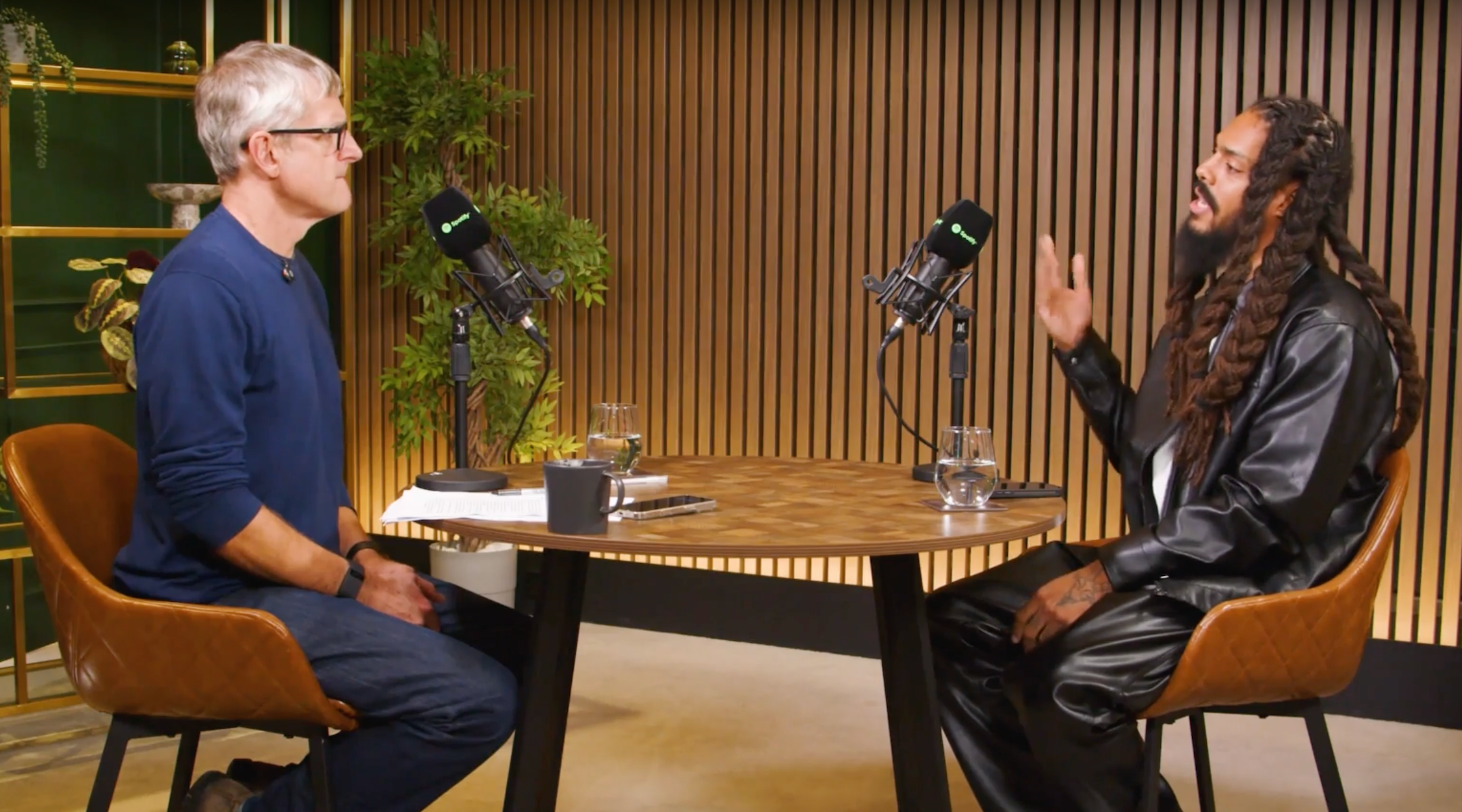British Airways has dropped its sponsorship of documentarian Louis Theroux’s podcast following an interview with British punk musician Bobby Vylan where the artist defended his chants of “death, death to the IDF” at the Glastonbury music festival.
Following the band’s Glastonbury performance in June, the two members of Bob Vylan had their U.S. visas revoked by the State Department ahead of a planned tour this month. The BBC also said the livestream of the performance broke its guidelines because Bob Vylan’s chants could “fairly be characterised as antisemitic.”
Bob Vylan’s frontman, whose real name is Pascal Robinson-Foster, Theroux that he did not regret the chants during the interview.
“If I was to go on Glastonbury again tomorrow? Yeah, I would do it again. I’m not regretful of it,” said Vylan. “I’d do it again tomorrow, twice on Sundays. I’m not regretful of it at all. Like, the subsequent backlash that I’ve faced is minimal. It’s minimal compared to what people in Palestine are going through.”
Robinson-Foster also criticized a report by the Community Security Trust, British Jewry’s antisemitism watchdog, that found antisemitic incidents had spiked the day after Bob Vylan’s set, telling Theroux that it was unclear what the group was “counting as antisemitic.”
“I don’t think I have created an unsafe atmosphere for the Jewish community,” said Robinson-Foster. “If there were large numbers of people being like, going out and ‘Bob Vylan made me do this,’ then maybe I might go, woof, I’ve had a negative impact here. Again, in that report, what definition are they going by? We don’t know that.”
During the interview, Robinson-Foster also said that the “focus” should not have been placed on the “death to the IDF” chant, but rather “on the conditions that allow for that chant to exist.”
“Ultimately, the fight is against white supremacy, right?,” said Robinson-Foster. “That is what the fight is against. And I think white supremacy is displayed so vividly in Zionists.”
In response, Theroux replied, “They say we’re not white, we’re Jewish, right?”
Later, Theroux appeared to agree with Robinson-Foster’s assertion that the “Zionist movement and the war crimes being committed by Israel” should be viewed through the “lens of white supremacy.”
“I think I’d add to that, there’s an even more macro lens which you can put on it, which is that Jewish identity in the Jewish community, as expressed in Israel, has become almost like an acceptable quote, unquote, way of understanding ethno-nationalism,” said Theroux, later adding that “this sense of post-Holocaust Jewish exceptionalism or Zionist exceptionalism, has become a role model on the national stage for what these white identitarians would like to do in their own countries.”
Following the interview, Theroux drew criticism for failing to challenge Robinson-Foster’s defense of his chants during the interview.
“Louis Theroux has every right to interview whoever he wants, but with that right comes responsibility,” Jewish film producer Leo Pearlman told the British outlet Jewish News. “When you give a microphone to someone who proudly repeats a genocidal chant that played a part in inspiring attacks on Jews across Britain, you’re not probing hate, you’re amplifying it.”
Dave Rich, the head of policy at the Community Service Trust, wrote in a blog post that he had been distressed that Theroux did not note that Robinson-Foster had publicly undercut the idea that his chant of “death to the IDF” was not meant as a call to voice when he commented at another concert, “We are for an armed resistance. We wanna make that explicitly f–king clear.” Rich also criticized the decision to release the interview even after the attack on a Manchester, England, synagogue in which two people were killed on Yom Kippur.
“Theroux’s podcast was recorded before the Manchester attack, which he acknowledges in the introduction,” Rich wrote. “But they still went ahead and published it anyway, as if the death of two Jews due to an Israel-hating jihadist doesn’t change the context of an interview with someone who became famous for calling for death for Israelis.”
After the interview aired on Spotify last Friday, British Airways issued a statement to announce it had dropped its sponsorship of Theroux’s show.
“Our sponsorship of the series has now been paused and the advert has been removed,” the airline wrote in a statement shared with the British outlet Jewish News. “We’re grateful that this was brought to our attention, as the content clearly breaches our sponsorship policy in relation to politically sensitive or controversial subject matters.”
The episode follows the release, in April, of a documentary by Theroux titled “The Settlers” that served a searing portrayal of the far-right Israeli settler movement in the West Bank.
JTA has documented Jewish history in real-time for over a century. Keep our journalism strong by joining us in supporting independent, award-winning reporting.





